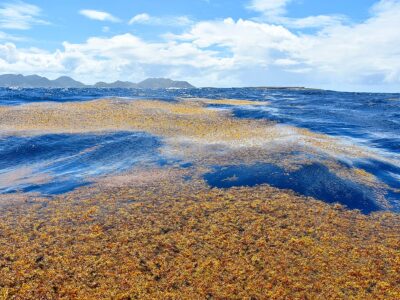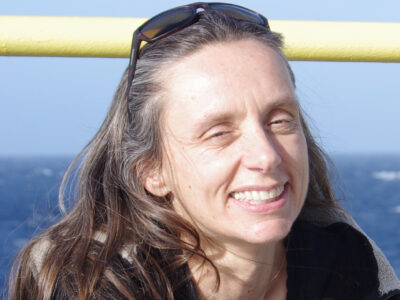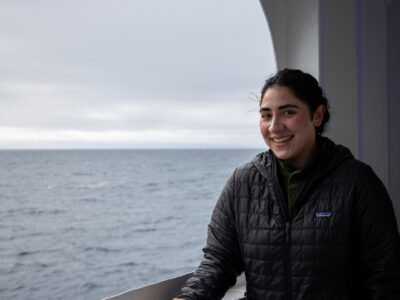
What makes someone a good mentor? Is it the way she is always available, even when 3,000 miles away? Or the way she gets to know her students as individuals who have lives outside the lab?
We got some insight last night from two award-winning mentors and the students whose lives they have changed.
Research Professor Gisela Winckler, a physicist and isotope geochemist, and Assistant Research Professor Natalie Boelman, a biogeoscientist studying ecosystems on the Arctic tundra, were honored yesterday with the 2015 Lamont-Doherty Earth Observatory Excellence in Mentoring Award. Their students explained why they deserved the nominations.

Graduate student Allison Jacobel shared quotes about Winckler from students and colleagues:
“Gisela entrusts us with her ideas, and in doing so she makes us eager to meet her expectations, work harder, and reach higher.”
“She takes the time to really know and understand her students. This allows her to recognize and encourage our interests and help us channel our strengths into productive avenues.”

Angelica Patterson, a Ph.D. student, talked about Boelman and described how the young professor had been a support system during stressful times, both professional and personal.
“She was often the first to read and reread what must have been at least 1,000 drafts of my research fellowship application, and really provided constructive criticism,” Patterson said.
“Natalie was never absent, even when she was over 3,000 miles away,” a technician who worked with Boelman wrote. “She is always available for others, not because she has time to spare, but because other people’s success is equally as important to her as her own.”
What do the mentors advise?
“What I have valued most in my own mentors,” Boelman said, “is their patience, dedication, compassion, and willingness to spend the time and mental energy to think things through with me – whether it’s on a scientific problem, or how to prioritize my time.”
Good mentors recognize that each student has different needs, Boelman said. Her advice for being a good mentor: “Some students come to you when they feel the need, others are more hesitant to do so, so it’s good to take the initiative to gently ping everyone from time to time, just to check in.”
Boelman continues to rely on mentors – Kevin Griffin and Chris Small of Lamont and Laura Gough of Towson University and Lee Vierling of the University of Idaho have all provided a range of independent perspectives that complement one another, she said.
Winckler recalled that as a student she never had a good mentor and she felt the absence. “This is probably my single major inspiration to try to thrive towards being a good mentor,” she said.
Winckler defines being a good mentor as “being able to transfer the beauty, satisfaction and passion for science from mentor to mentee. To do so, social human skills seem equally important as scientific excellence. In my view, only if there is mutual connection and respect between mentor and mentee, this transfer can work.”
“Be yourself, get involved,” Winckler advises mentors. “Interacting with and mentoring students and postdocs is one of the most satisfying and fun experiences in academia.”
Learn more about the professors and researchers at Lamont-Doherty Earth Observatory.



